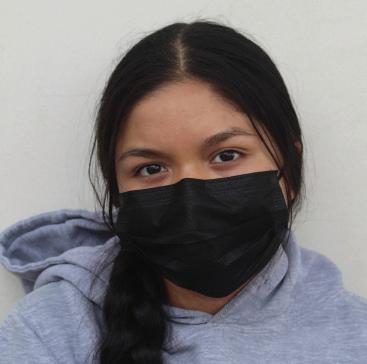
2 minute read
COLUMN Abortion medication is healthcare
"“Converse.Ithinkthey’rejustvery simple.Ihavetroublematching clothessoIlikejustgoingwith thesimpleoption.”NatalieToro, Psychology&BiologyMajor
BY SOPHIA CANO Reporter
Advertisement
The right to chooseit’s a popular subject of debate in the United States today. With the Texas ruling of the abortion pill, it’s only going to get more intense.
“TheonesIgotonmyfeet, Converse.They’reaffordable,they’re comfyandtheylastlong.”Matthew Rivera,BiologyMajor
At the end of the day, it all comes down to access to healthcare, because people who want to have abortions will have them - whether it’s legal or not.
Mifepristone, the drug in question, is an abortion pill that can be taken up to 10 weeks into a pregnancy. The cause behind the ban was a lawsuit against the FDA from a decision in 2000 about the safety of Mifepristone. The lawsuit claimed that the FDA approved Mifepristone without sufficient evidence that it was safe.
Although that is their reasoning, the FDA website says that “The FDA’s periodic reviews of the postmarketing data for Mifeprex and its approved generic have not identified any new safety concerns with the use of mifepristone for medical termination of pregnancy through 70 days gestation. (14)” It has been used safely to terminate pregnancies for 23 years, with periodic inspections to make sure the product is still safe for use.
The main purpose of Mifepristone is to stop the pregnancy from advancing.
According to an article by CaraFem, “The first pill, mifepristone, blocks progesterone, a hormone necessary for a pregnancy to continue to develop. The second pill, misoprostol, is typically taken as a set of four pills. It causes cramping and bleeding in order to empty the uterus. (2)”
With the banning of Mifepristone, people can still access Misoprostol, which means that people will still be able to have abortions even without Mifepristone.

The important thing here isn’t whether or not somebody is against abortion, but more so the safety of the women having the abortions. Whether it’s for safety or for the livelihood of the parent(s), people will terminate their pregnancies even if it puts themselves at risk.
Pew Research Center reported that when they became legal, the number of abortion-related deaths dropped significantly.
In 1972, the year before Roe v. Wade passed, 35 women died from abortion complications, as opposed to less than 10 women in 1974.
It also should be noted that this ban would disproportionately impact people of low income, because they would not be able to travel out of state or use other methods to terminate a pregnancy.
According to an article by The National Partnership for Women and Families, The HYDE Act bans funding of abortions through government assistance programs such as Medicare.
“Since 1976,The Hyde Amendment has withheld federal funds from covering abortion care for women enrolled in Medicaid. In addition, many states restrict abortion coverage even further, for example by prohibiting private insurance coverage of abortion care.
As a consequence, abortion
Photographers:
Ashley Shellmire and implementation of newly developing technologies.” Through promotion, education and organization the awareness of databases can become a vital tool for students. newsroom.roundupnews@gmail.com care is pushed out of reach for millions of women with the burden falling heaviest on low income women, women of color and young women. (2)”
People under these conditions would be forced to carry their pregnancy to term or try and terminate the pregnancy themselves, which could result in injury. A lot of these women may not have the financial or emotional assistance needed to care for a child successfully, resulting in negative effects on both the livelihood of the child and the mother.
This abortion pill ban is overall ineffective in stopping abortions, and is a threat to the lives of the people in Texas. It affects low-income people of color at a higher rate, and is a step backwards from the rights that women have gained since the start of the country.
Hunter Hammerot
Wyatt Sanchez

Owen Meza
Jay Abril
Audrinna Meza
Lauren Bulchand
Icy Smith
*For advertising call (818) 710-2960







